
The Prevention Generation: Evolving Strategies to Engage Youth
November 18, 2025The “The Prevention Generation: Evolving Strategies to Engage Youth” webinar is designed to empower professionals to take an active role in engaging youth in HIV prevention. “The Prevention Generation” will discuss innovative and effective engagement strategies, share real-world experiences from youth-focused professionals, and promote actionable steps to help keep the next generation engaged in reducing the spread of HIV.
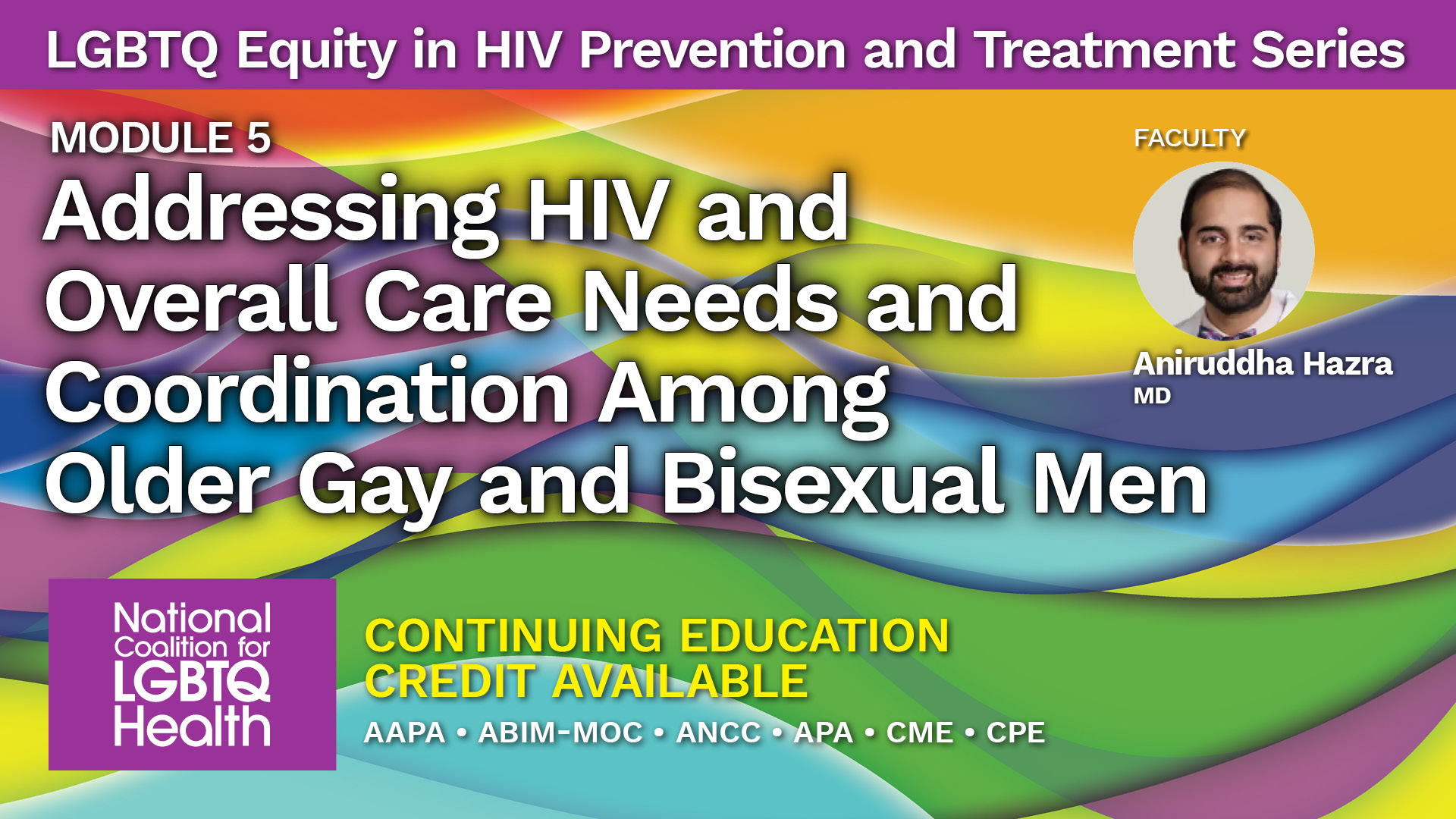
Addressing HIV and Overall Care Needs and Coordination Among Older Gay and Bisexual Men
August 15, 2025Join Aniruddha Hazra, MD, as he examines the intersection of aging, HIV, and broader health needs for older gay and bisexual men, with a focus on care coordination and long-term wellness. Additionally, Dr. Hazra will also provide critical insights into managing comorbidities, addressing social and mental health challenges, and strengthening interdisciplinary approaches to ensure holistic, affirming care for aging gay and bisexual men living with or at risk for HIV.
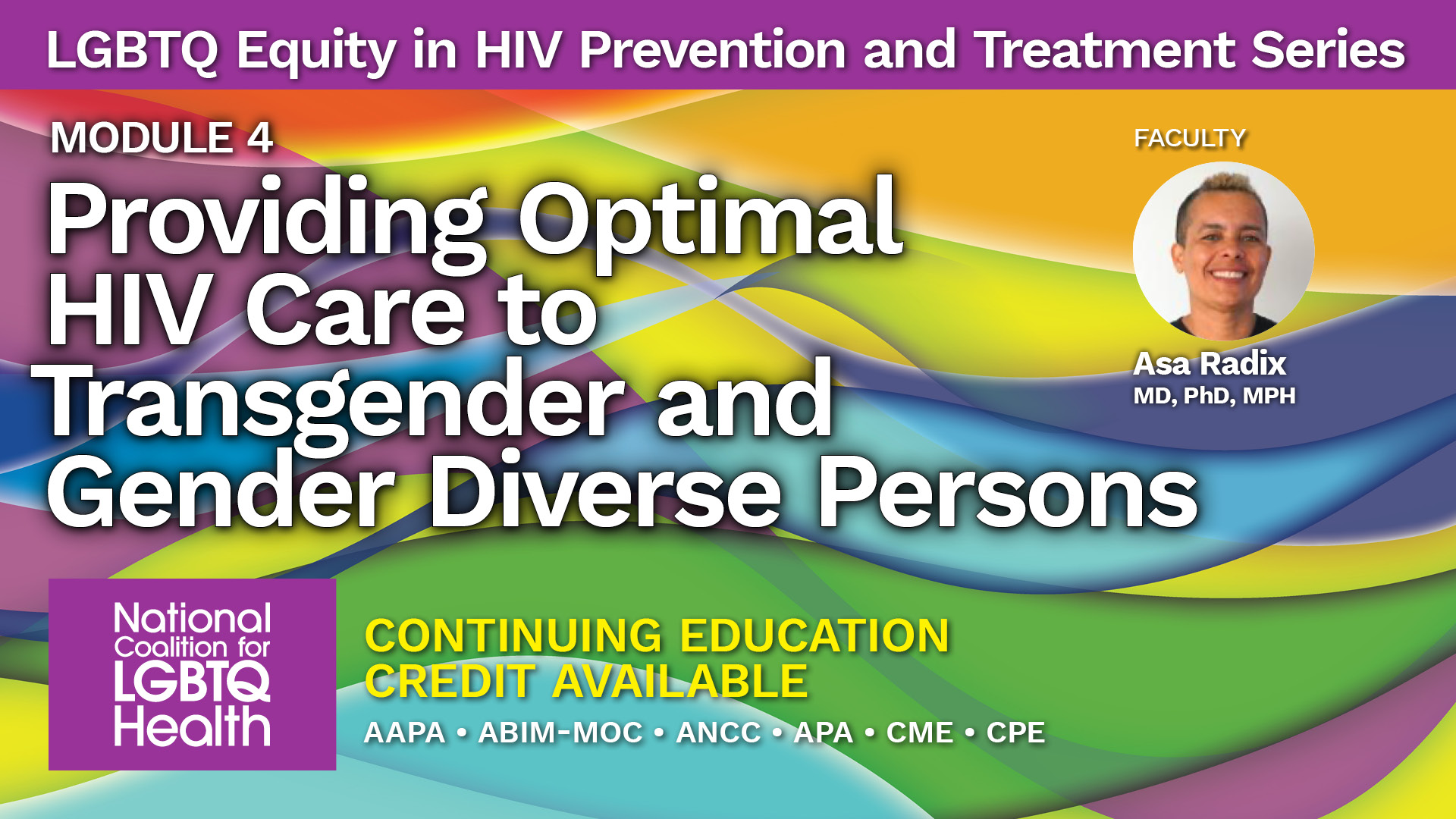
Providing Optimal HIV Care to Transgender and Gender Diverse Persons
August 8, 2025Join Asa Radix, MD, PhD, MPH, as they explore best practices in delivering gender-affirming, patient-centered HIV prevention and treatment. Additionally, Dr. Radix will also provide critical insights into reducing barriers to care, integrating inclusive clinical practices, and addressing the unique health needs of transgender and gender diverse communities across the HIV care continuum.
Comprehensive, Evidence-Based, Consensus Guidelines for Prescription of Opioids for Chronic Non-Cancer Pain from the American Society of Interventional Pain Physicians (ASIPP)
August 1, 2025This webinar offers a focused overview of the 2023 Clinical Practice Guidelines from the American Society of Interventional Pain Physicians (ASIPP), highlighting evidence-based strategies for prescribing opioids to manage chronic non-cancer pain.
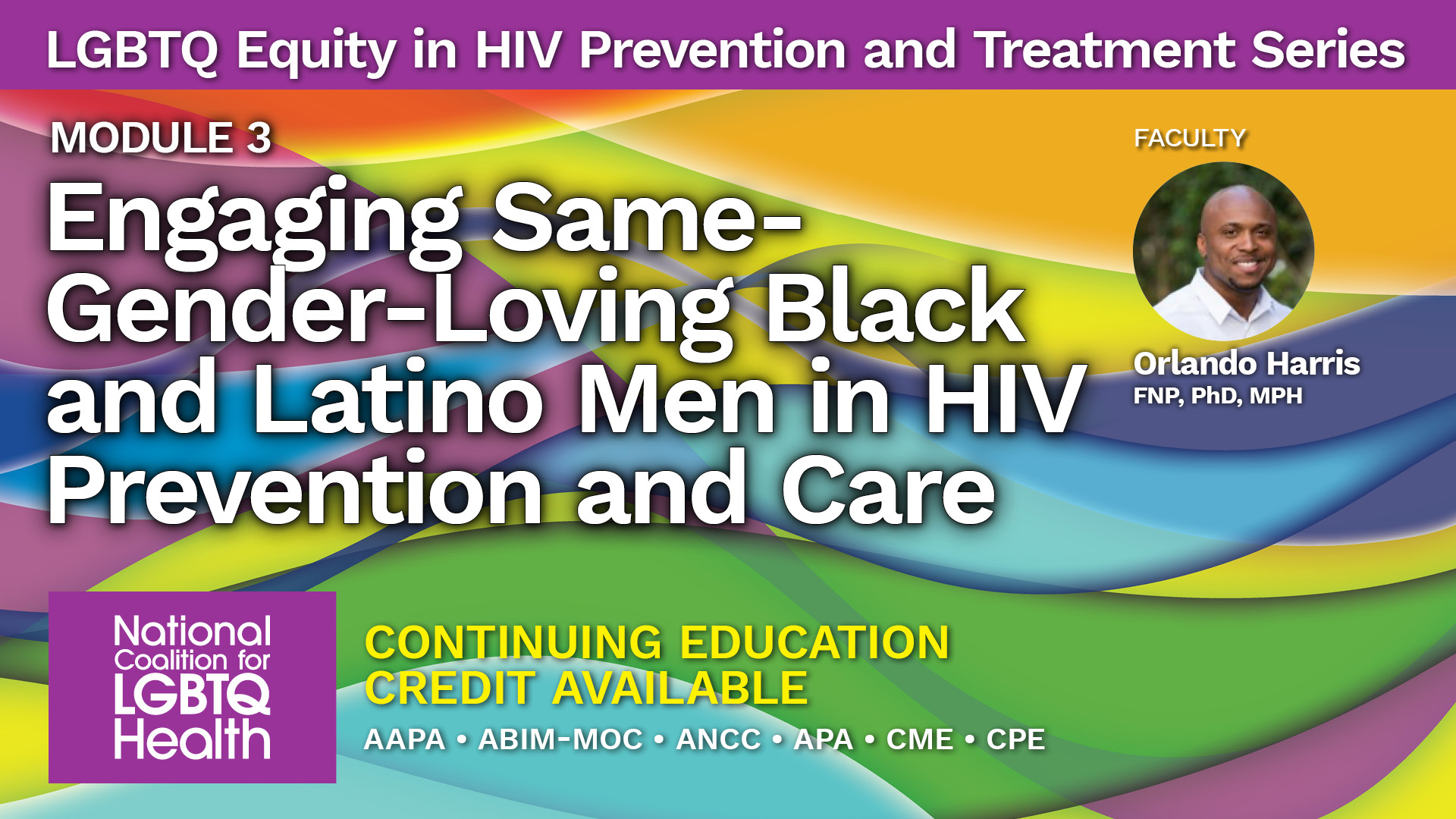
Engaging Same-Gender-Loving Black and Latino Men in HIV Prevention and Care
July 16, 2025This module explores the intersection of identity, stigma, and structural barriers that impact HIV prevention and care for same-gender-loving (SGL) Black and Latino men.
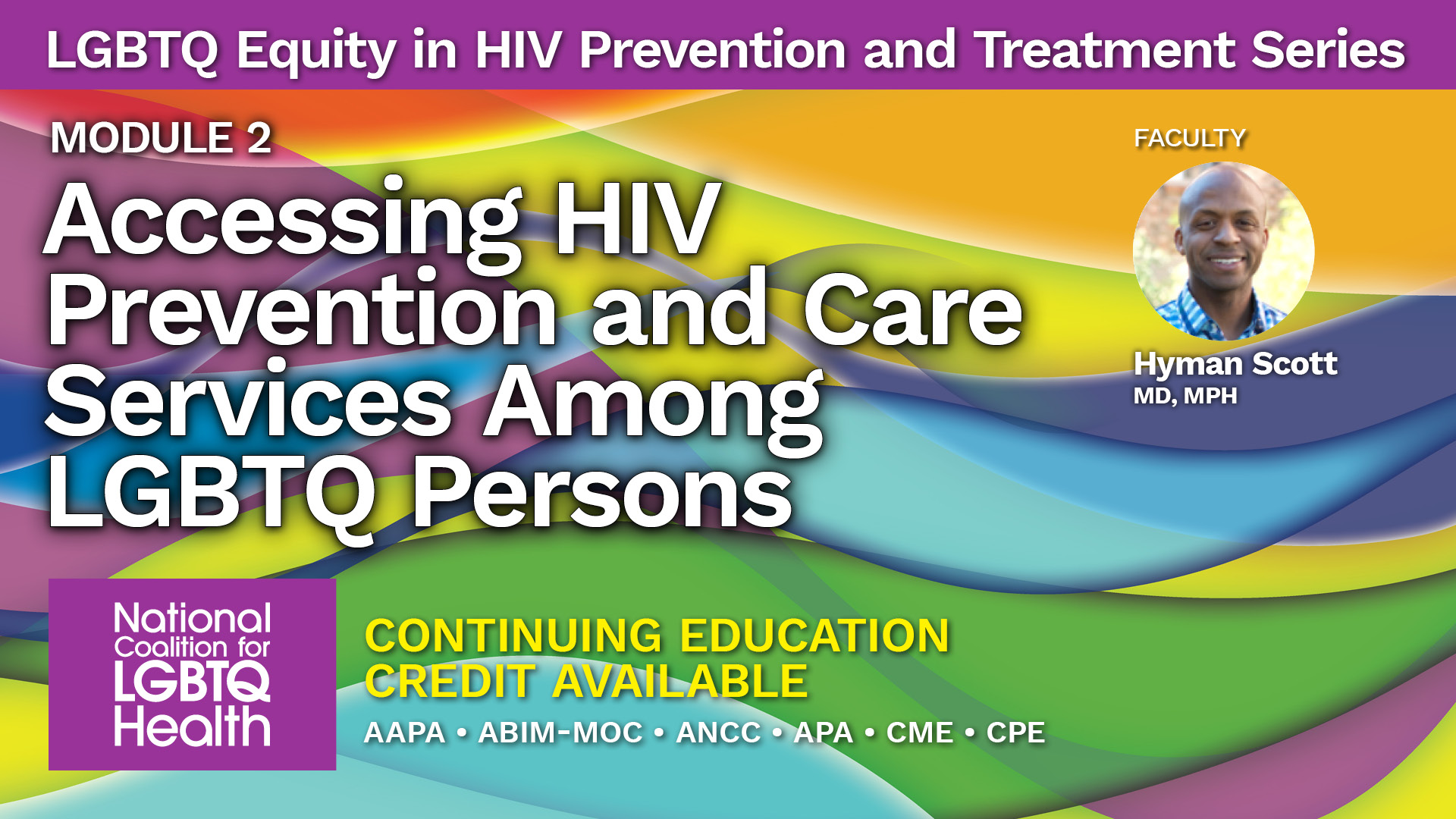
Accessing HIV Prevention and Care Services Among LGBTQ Persons
July 2, 2025This activity examines the structural and systemic barriers LGBTQ individuals face when accessing HIV prevention and care services. Participants will review evidence-based strategies for improving access, such as navigation support, inclusive care models, and approaches to address stigma, documentation, and insurance-related challenges.
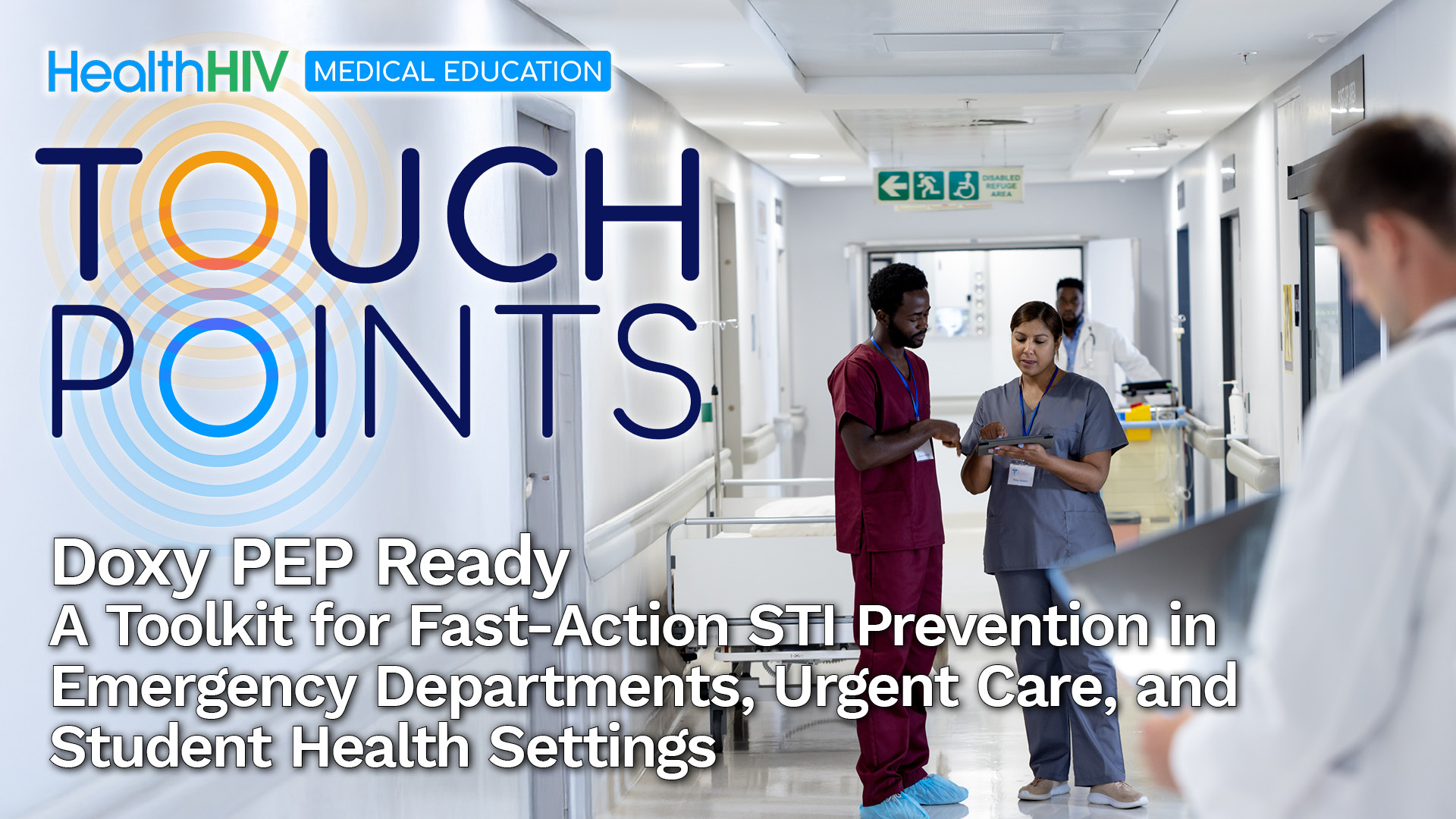
Doxy-PEP Ready: A Toolkit for Fast-Action STI Prevention in Emergency Departments, Urgent Care, and Student Health Settings
June 30, 2025“Doxy-PEP Ready: A Toolkit for Fast-Action STI Prevention in Emergency Departments, Urgent Care, and Student Health Settings” was developed for HealthHIV’s Touch Points program to address the growing need for effective, timely interventions for sexually transmitted infections (STIs).
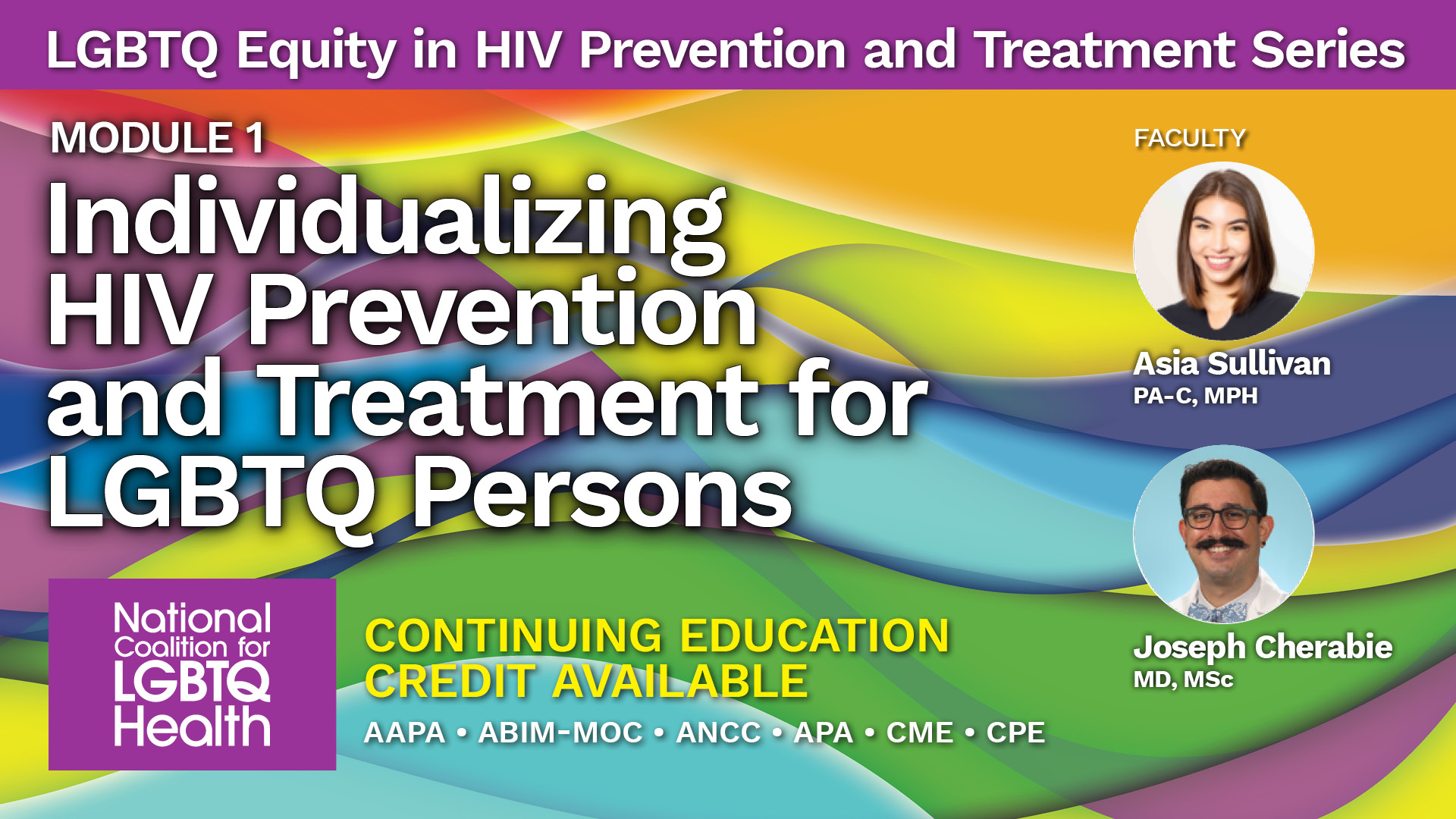
Individualizing HIV Prevention and Treatment for LGBTQ Persons
June 16, 2025This activity provides an overview of current HIV prevention and treatment options with a focus on tailoring care to the needs and preferences of LGBTQ individuals. Participants will explore patient-centered approaches to sexual history-taking, age-specific care considerations, and integration of STI prevention strategies, including DoxyPEP, into comprehensive HIV prevention planning.
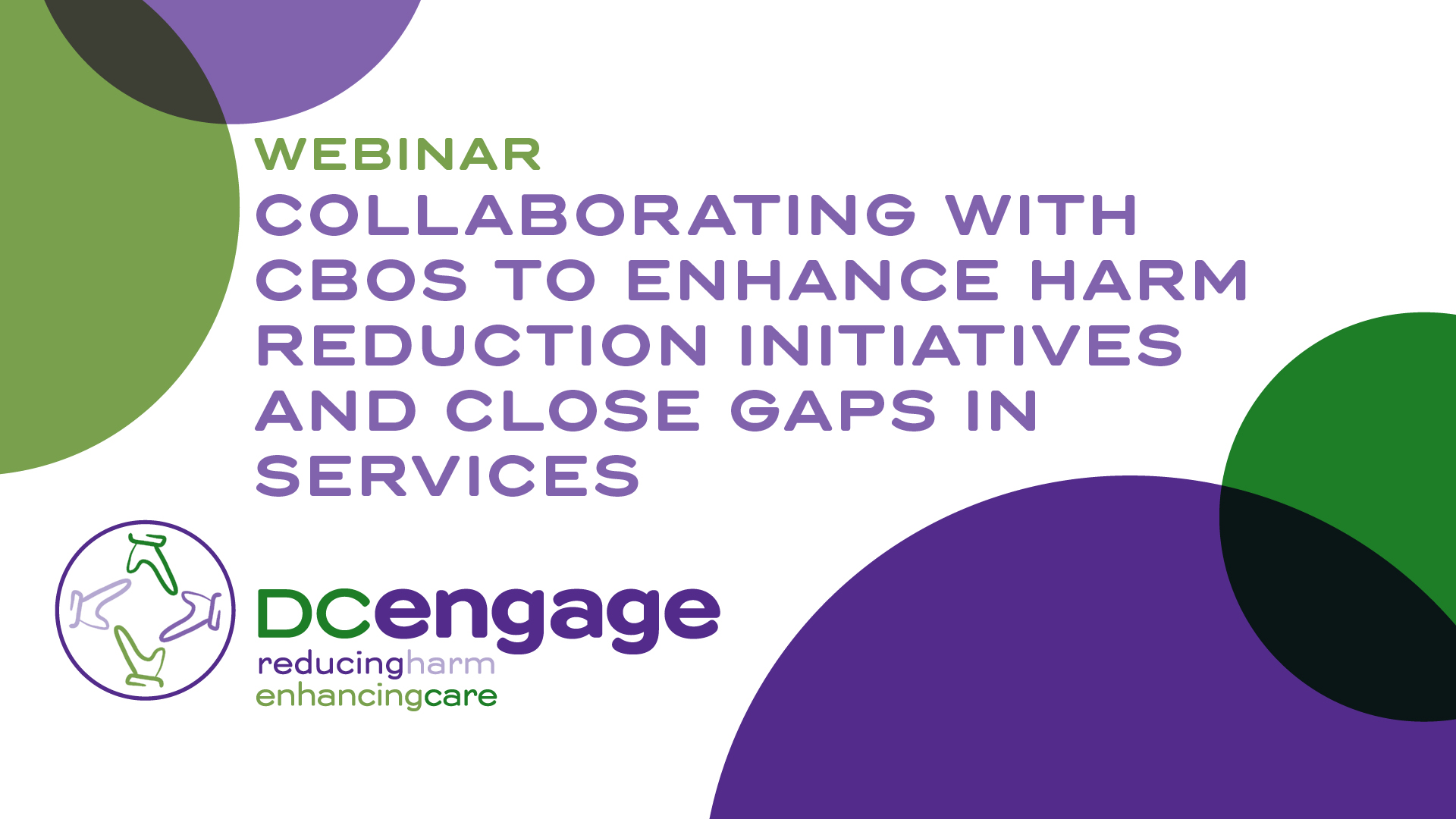
Collaborating with CBOs to Enhance Harm Reduction Initiatives and Close Gaps in Services
May 14, 2025This webinar will explore how community-based organizations can strengthen harm reduction efforts by working together to create a seamless network of support. By identifying service gaps and forming strategic partnerships within their immediate region, CBOs can offer a more comprehensive, wraparound approach to care—ensuring that individuals have continuous access to essential services like overdose prevention, housing support, healthcare navigation, and peer-led interventions.
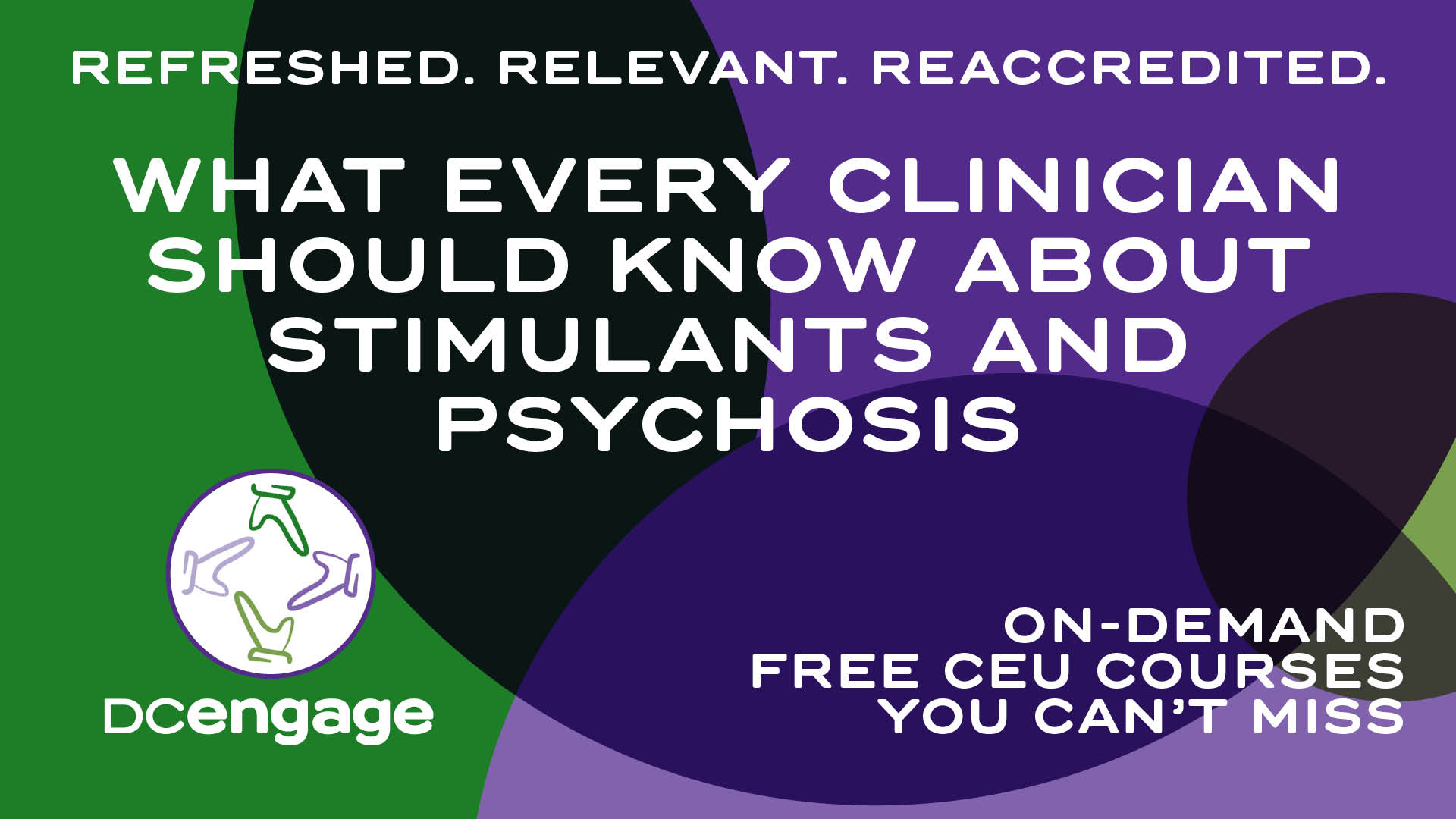
Stimulants and Psychosis: Prescription Stimulant Misuse and Abuse
May 9, 2025This course gives providers the tools necessary to better identify prescription stimulant misuse and abuse and how to address these concerns before they develop into chronic issues.

Stimulants and Psychosis: Etiology, Epidemiology, and Management
This course highlights the prevalence and causes of stimulant-based psychosis, describes how to care for a patient experiencing stimulant-based psychosis, and provides resources for individuals who experience this type of psychosis.
Needs of Returning Citizens with Substance Use Disorders
This module covers the various health and social needs of previously incarcerated individuals with substance use disorders upon returning home to their Washington, D.C. communities.

